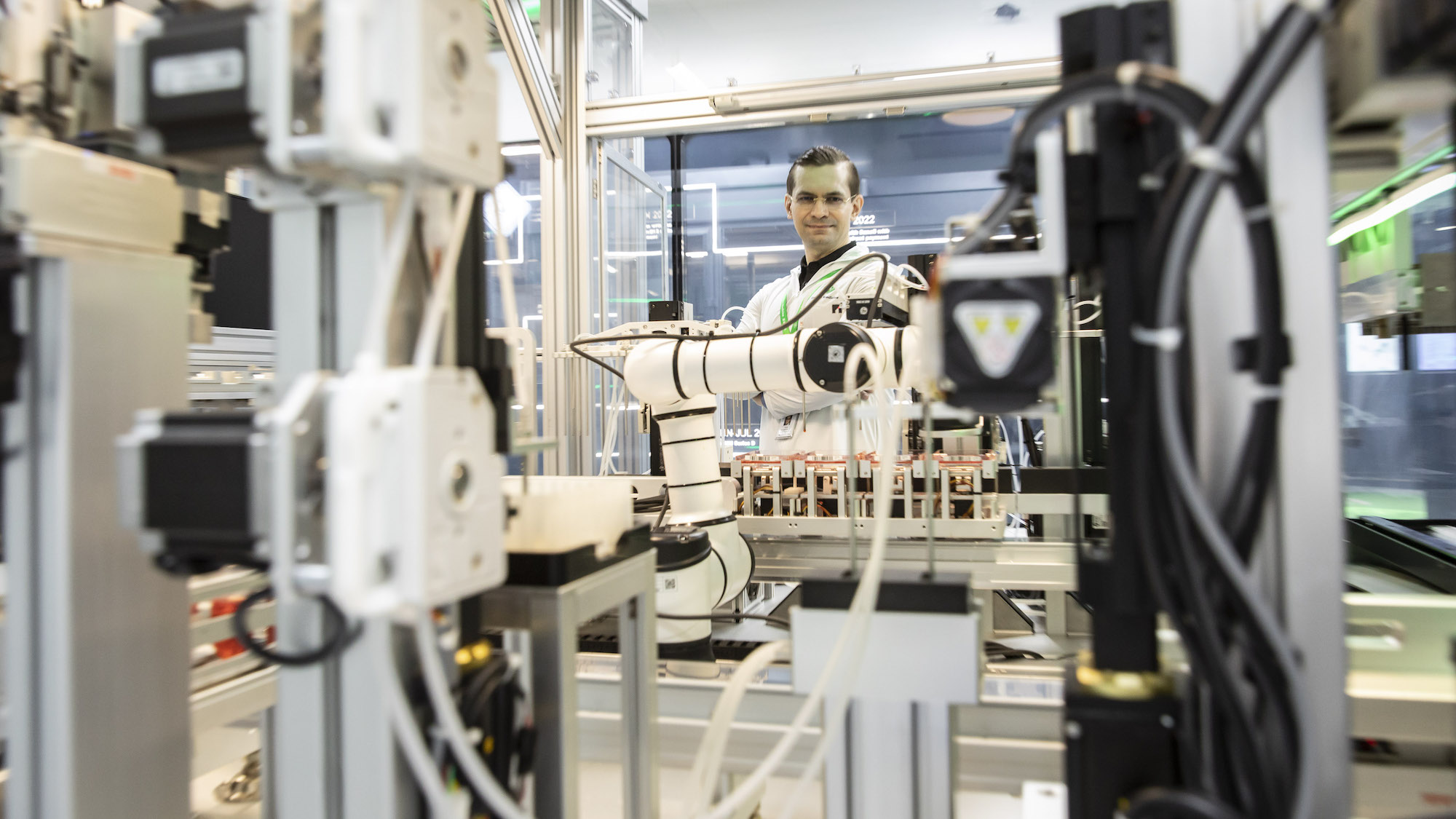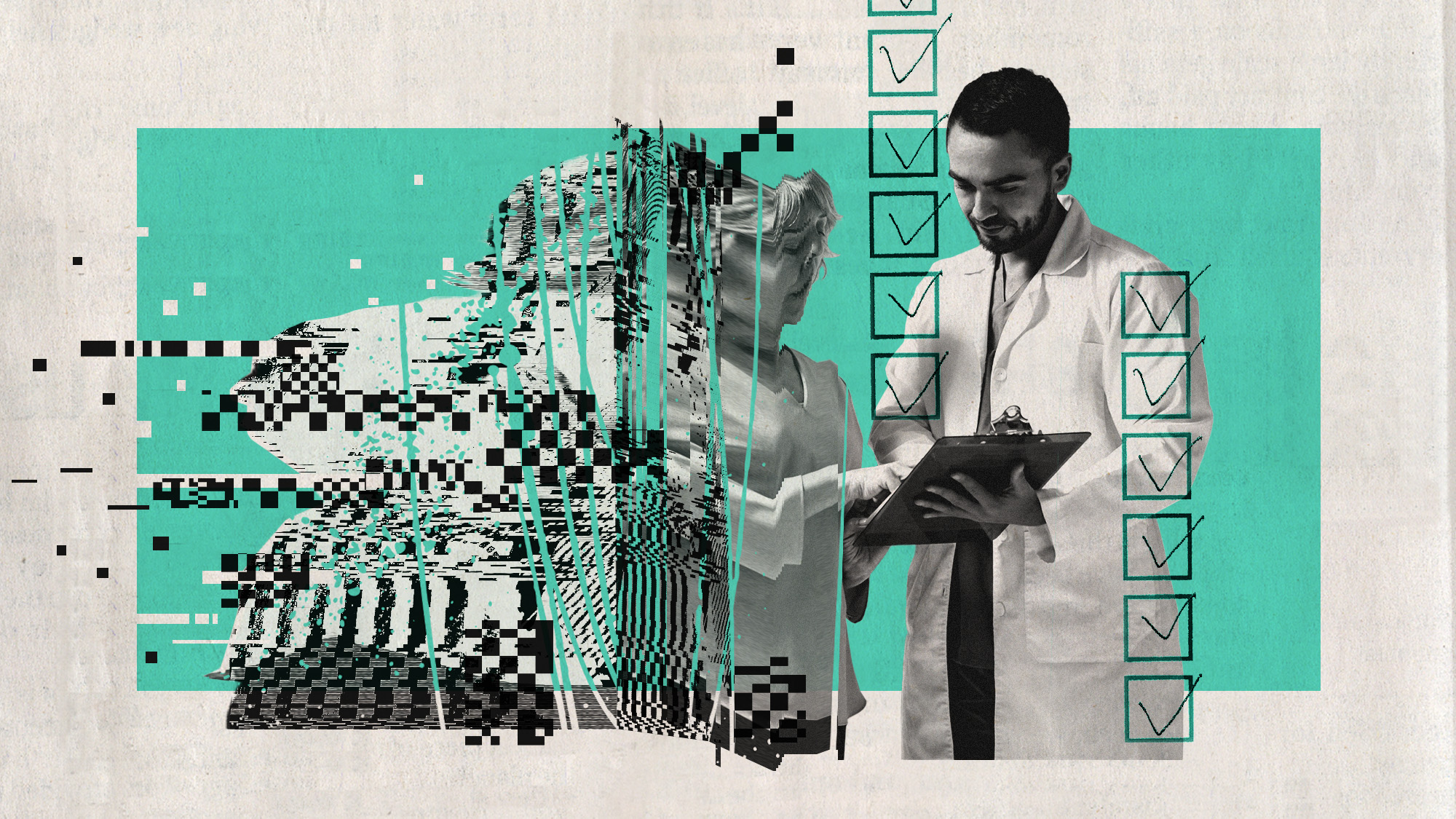How AI is changing drug development
Machine learning is allowing scientists to speed up the process of drug discovery and development

A free daily email with the biggest news stories of the day – and the best features from TheWeek.com
You are now subscribed
Your newsletter sign-up was successful
Drug developers are seeking to speed up the testing and developing of new drugs with the help of artificial intelligence (AI).
Researchers at universities and pharmaceutical giants are testing how AI could drastically cut the length of the discovery and development phase of new treatments, which can typically last "12 years or more", said Vox.
Scientists are using AI to find patterns across "large bodies of disparate data" and produce hypotheses that they "could or would not come up with on their own", said The Economist. These are then tested and used to identify potential new drugs or even "new applications for old drugs".
The Week
Escape your echo chamber. Get the facts behind the news, plus analysis from multiple perspectives.

Sign up for The Week's Free Newsletters
From our morning news briefing to a weekly Good News Newsletter, get the best of The Week delivered directly to your inbox.
From our morning news briefing to a weekly Good News Newsletter, get the best of The Week delivered directly to your inbox.
With the technology still in its infancy, the drug data produced by AI is tested and validated before being considered for further development. But experts hope that the next few years of AI research could "materially shift" the way that drugs are developed.
How exactly are scientists using AI?
While generative AI is far away from being able to speed up the clinical testing process of a drug, said Nature, it could potentially help reduce the long period in which the "biological target responsible for a disease" is identified, then "screening for molecules that might interact with it" (the discovery phase) and the subsequent preclinical testing of a drug molecule.
AI can analyse huge swathes of data in days, a task that would take humans years, examining complex protein structures and evaluating potential target molecules.
Being able to sift through billions of data points so quickly means the "potential for new drug discoveries is massive", said Vox. And as machine learning advances, it will only "continue to accelerate the process" of discovering new drugs.
A free daily email with the biggest news stories of the day – and the best features from TheWeek.com
Big Pharma companies are largely spearheading investment in the expansion of AI in drug development, but large tech firms, including Google, and many start-ups, are also cashing in with their own AI tools. Google's AI drug discovery company, Isomorphic Labs, has already signed deals with drug companies worth billions, with promises to "revolutionise the lengthy process", said the Financial Times, and to potentially "halve the time taken to find new medicines", saving companies billions in costs.
What are the implications?
The current system of paying billions to develop drugs, most of which fail in clinical trials, is "unsustainable", Regina Barzilay, professor of AI and Health at the Massachusetts Institute of Technology, told Vox. She added that AI will eventually treat diseases for which there is not yet a drug, and help replace drugs with severe side effects.
The uses of AI "are not all perfect", however, said The Economist. While there is significant indication that deep learning tools will offer greater and greater assistance, AI is far from being able to assist in the entire process of drug creation or remove people entirely from it. There are still questions over its reliability, too, given the critical nature of the field and the weight of decision-making. It is not yet clear when people will be able to "put their full trust" in AI's ability to make critical decisions, said Vox.
What next?
There is little question that AI will have an increasingly deeper involvement in drug development. But the systems need to continually "learn and improve", said Nature, and ultimately, that is a case of having a human to "make and test the molecules they suggest" and feed back the results to the machine. AI still needs to "prove itself fully", said Bloomberg, and the success of its use in drug development will only be ascertained through human studies.
However, more AI-generated drugs will also require new forms of regulation to keep control of development and testing standards. There are signs that these AI drugs are "fast approaching", said The Economist, and "drug regulators will need to up their game to meet the challenge".
The next few years will "demonstrate conclusively" whether AI-developed drugs will prove as successful as some predict, but even "incremental improvements" in drug development "could still be a real boon" for the world.
Richard Windsor is a freelance writer for The Week Digital. He began his journalism career writing about politics and sport while studying at the University of Southampton. He then worked across various football publications before specialising in cycling for almost nine years, covering major races including the Tour de France and interviewing some of the sport’s top riders. He led Cycling Weekly’s digital platforms as editor for seven of those years, helping to transform the publication into the UK’s largest cycling website. He now works as a freelance writer, editor and consultant.
-
 El Paso airspace closure tied to FAA-Pentagon standoff
El Paso airspace closure tied to FAA-Pentagon standoffSpeed Read The closure in the Texas border city stemmed from disagreements between the Federal Aviation Administration and Pentagon officials over drone-related tests
-
 Political cartoons for February 12
Political cartoons for February 12Cartoons Thursday's political cartoons include a Pam Bondi performance, Ghislaine Maxwell on tour, and ICE detention facilities
-
 Arcadia: Tom Stoppard’s ‘masterpiece’ makes a ‘triumphant’ return
Arcadia: Tom Stoppard’s ‘masterpiece’ makes a ‘triumphant’ returnThe Week Recommends Carrie Cracknell’s revival at the Old Vic ‘grips like a thriller’
-
 Metal-based compounds may be the future of antibiotics
Metal-based compounds may be the future of antibioticsUnder the radar Robots can help develop them
-
 Stopping GLP-1s raises complicated questions for pregnancy
Stopping GLP-1s raises complicated questions for pregnancyThe Explainer Stopping the medication could be risky during pregnancy, but there is more to the story to be uncovered
-
 RFK Jr. sets his sights on linking antidepressants to mass violence
RFK Jr. sets his sights on linking antidepressants to mass violenceThe Explainer The health secretary’s crusade to Make America Healthy Again has vital mental health medications on the agenda
-
 Nitazene is quietly increasing opioid deaths
Nitazene is quietly increasing opioid deathsThe explainer The drug is usually consumed accidentally
-
 The plant-based portfolio diet invests in your heart’s health
The plant-based portfolio diet invests in your heart’s healthThe Explainer Its guidelines are flexible and vegan-friendly
-
 More women are using more testosterone despite limited research
More women are using more testosterone despite limited researchThe explainer There is no FDA-approved testosterone product for women
-
 How medical imposters are ruining health studies
How medical imposters are ruining health studiesUnder the Radar Automated bots and ‘lying’ individuals ‘threaten’ patient safety and integrity of research
-
 Doctors sound the alarm about insurance company ‘downcoding’
Doctors sound the alarm about insurance company ‘downcoding’The Explainer ‘It’s blatantly disrespectful,’ one doctor said